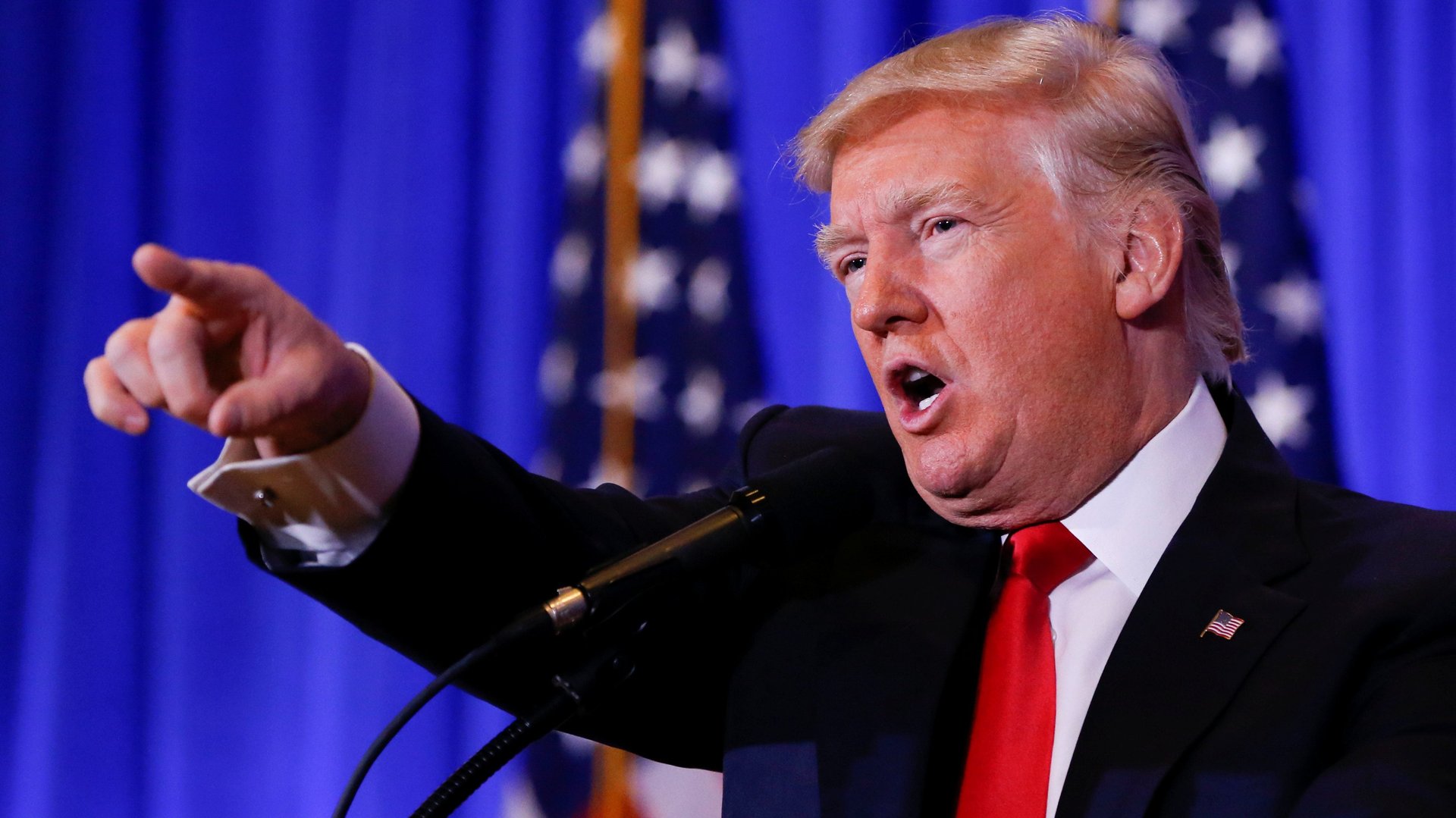A lawsuit accusing Donald Trump of violating the constitution could force the release of his tax returns
Week one of US president Donald Trump’s reign has begun and the first lawsuit has rolled in.


Week one of US president Donald Trump’s reign has begun and the first lawsuit has rolled in.
The advocacy group Citizens for Responsibility and Ethics in Washington (CREW) is arguing that the president’s failure to divest from his businesses means he is violating the emoluments clause of the US Constitution by receiving payments from foreign government—most conspicuously at his Washington DC hotel, which has become a hot spot for visiting diplomats.
“The actions by Trump are truly extraordinary in the worst sense of the word,” said Zephyr Teachout, an expert on the emoluments clause at Fordham University and a former New York congressional candidate, who is part of CREW’s team. “What you usually see is presidents going out of their way—really far out of their way—turning down, you know, a gift sword because it’s against the fundamental law of our republic to accept gifts from foreign powers.”
CREW is headed by former White House ethics lawyers Norm Eisen and Richard Painter, and backed up by a team including Teachout, top DC lawyer Deepak Gupta, and constitutional law experts at Harvard University and the University of California, Irvine.
They aren’t seeking financial compensation but want the court to order Trump to stop receiving foreign payments. That would mean divesting from his businesses, Teachout says: “If he’s not divesting, it’s a technically impossible task to have daily monitoring [of his businesses]. So, the Constitution requires selling in this case—liquidating assets.”
Trump’s legal team has argued he is clear of the emoluments clause, promising to donate profits from hotel payments made by foreign officials to the government. His lawyer Sheri Dillon told a press conference on Jan. 11 that “president-elect Trump should not be expected to destroy the company he built.”
But CREW chair Norm Eisen, the former top ethics lawyer to president Obama, says neither argument holds legal weight. “It’s long been the position of the department of justice that you have to segregate all revenues, not just profits,” he said. “Number two, there’s nothing unfair about it—on the contrary it’s unfair for Mr Trump to withhold his tax returns.”
Teachout and Eisen wouldn’t comment on the suit’s expected timeline, but Eisen acknowledged such cases often end up at higher courts—meaning it could be a long time before it is resolved. In the short term, Trump critics are hoping for an easy win: The lawyers believe the president will have to show the court the tax returns he has refused to release to clarify exactly what payments he is receiving.
It’s unclear whether Trump can use government lawyers to defend himself at New York’s southern district federal court, since the suit is against him in a personal capacity. Neither the White House nor Trump’s law firm Morgan Lewis responded to requests for comment (but we will update this story if they do). Trump himself reportedly told NBC that the suit is “totally without merit.”
Eisen said the group chose New York’s southern district because it “has the strongest connection to the Trump organization. It’s where the cash and businesses actually hit Trump pockets.”
To have legal standing to sue Trump, CREW needs to prove that it has been concretely harmed by the alleged constitutional violation. Eisen argues that the resources it has diverted to fighting the alleged violation and commenting to journalists on the case should give them enough ballast.